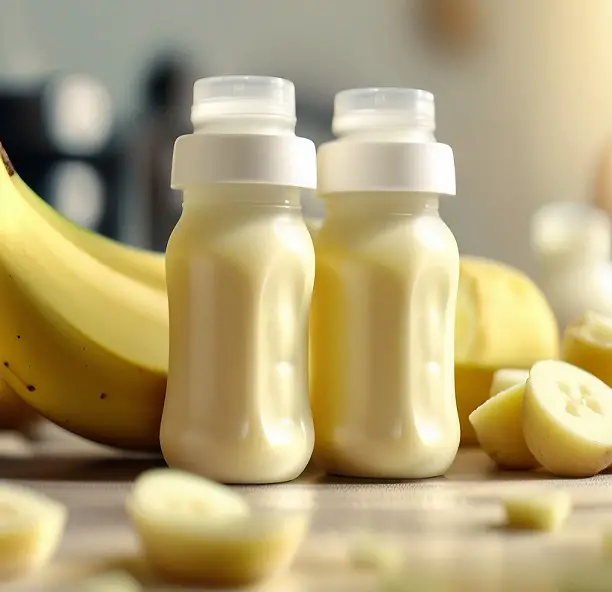If you are a new parent, choosing the right formula for your baby can be a daunting task. With so many options available, it is normal to feel overwhelmed. One question that frequently arises is whether goat milk formula can cause eczema. In this section, we will explore this topic in-depth.

Eczema is a common skin condition that affects people of all ages. It is characterized by dry, itchy, and inflamed skin. Although the exact cause of eczema is unknown, it is believed to be related to genetics and environmental factors. Eczema can develop in infants, and it is important to know the symptoms to identify it early.
Some common symptoms of eczema in babies include:
- Dry, scaly skin
- Redness or rash
- Itching
- Bumps or blisters
If you suspect that your baby has eczema, it is important to consult with a healthcare professional. They can provide a proper diagnosis and recommend a suitable treatment plan.
Now, let’s dive into the topic of whether goat milk formula can cause eczema.
Key Takeaways:
- Eczema is a common skin condition that can affect infants.
- Some symptoms of eczema in infants include dry, scaly skin, redness or rash, itching, and bumps or blisters.
- If you suspect that your baby has eczema, consult with a healthcare professional for a proper diagnosis and treatment plan.
Understanding Eczema: Symptoms and Identification
Eczema is a common skin condition that affects people of all ages, including infants. It is typically characterized by red, itchy, and inflamed patches of skin. Identifying eczema in your baby may not be easy, but there are several symptoms to watch out for.
One of the most common symptoms of eczema is a rash that is dry, scaly, and itchy. The rash may appear on your baby’s face, neck, arms, legs, or other areas of the body. It may come and go, at times being more severe than others.
Your baby may also develop small bumps on their skin. These bumps can be red, brown, or white and may become crusty or ooze fluid. Over time, the skin can become thickened, raised, and darkened in the affected areas.
In some cases, eczema can cause your baby to scratch constantly, which can lead to further skin irritation and infection. If you notice any of these symptoms, it is important to contact your healthcare provider for an evaluation.
Other clues that may indicate eczema include skin that is dry and rough to the touch, as well as areas of the skin that are sensitive and prone to irritation.
Can Goat Milk Formula Trigger Eczema?
If your baby has been diagnosed with eczema or has been experiencing symptoms like dry, itchy, or red skin, you may be wondering if goat milk formula could be the culprit. While there is no conclusive evidence linking goat milk formula to eczema, there are several potential factors that could contribute to eczema development.
Allergies and Intolerance
One of the primary concerns with goat milk formula and eczema is the potential for allergies or intolerance. Goat milk contains similar proteins to cow milk, which can trigger an allergic reaction in some infants. Symptoms of a milk allergy may include hives, wheezing, vomiting, or diarrhea. Additionally, some babies may be intolerant to lactose, which is found in both goat and cow milk. If your baby has a milk allergy or intolerance, it could exacerbate eczema symptoms.
Digestive Issues
Another potential issue with goat milk formula and eczema is related to digestion and absorption. Some babies may have difficulty digesting the proteins in goat milk, which could lead to gastrointestinal discomfort or inflammation. This, in turn, may contribute to the development of eczema or exacerbate existing symptoms.
Nutrient Composition
Finally, it’s important to consider the nutrient composition of goat milk formula when evaluating its potential impact on eczema. While goat milk is rich in several key nutrients, including protein, calcium, and vitamin D, it may not always be the best option for babies with eczema. For example, if your baby has a sensitivity to casein, a protein found in both goat and cow milk, an alternative formula may be better suited to their needs. Additionally, some babies with eczema may benefit from formulas with specific ratios of fat or vitamins to support healthy skin function.
Overall, while there is no direct link between goat milk formula and eczema, it’s important to take into consideration the potential impact of allergies, intolerance, digestion, and nutrient composition when evaluating your baby’s dietary needs. If you suspect your baby has eczema or if you have concerns about their formula, it’s always best to consult with a healthcare professional.
Alternatives to Goat Milk Formula: Pros and Cons
If you suspect your baby has eczema and are looking for alternatives to goat milk formula, there are various options to consider. Each alternative comes with its own advantages and disadvantages, so it’s important to carefully evaluate them before making a decision.
Here are some alternatives to goat milk formula:
| Formula Type | Taste | Cost | Availability | Lactose | Casein | Whey | Fat | Protein | Minerals | Vitamins |
|---|---|---|---|---|---|---|---|---|---|---|
| Cow Milk Formula | Similar to Goat Milk | Lower Cost | Widely Available | Higher Lactose | Higher Casein | Lower Whey | Lower Fat | Lower Protein | Lower in Vitamins and Minerals | Added Vitamins and Minerals |
| Soy Formula | Slightly Sweet | Higher Cost | Widely Available | No Lactose | No Casein | No Whey | Lower Fat | Lower in Protein | Lower in Vitamins and Minerals | Added Vitamins and Minerals |
| Hydrolyzed Formula | Neutral Taste | Higher Cost | Less Available | Varies | No Casein | No Whey | Lower Fat | Lower Protein | Varies | Added Vitamins and Minerals |
Note: Always consult with a healthcare professional before trying a new formula, particularly if your baby has a known food allergy or intolerance.
When making a decision, you will want to consider factors such as taste, cost, and availability, as well as the lactose, casein, whey, fat, protein, mineral, and vitamin content. Keep in mind that while some formulas may be lower in certain nutrients than others, they may also have added vitamins and minerals to compensate.
The choice ultimately comes down to what works best for your baby’s needs. It may take some trial and error to find the right formula, but with time and patience, you can help manage your baby’s eczema symptoms.
Conclusion: Unraveling the Truth About Goat Milk Formula and Eczema
If you’ve been wondering, “can goat milk formula cause eczema?” the answer is not clear cut. While goat milk formula may trigger eczema in some babies due to allergies or digestion issues, there is no conclusive evidence to suggest a direct causation.
If you suspect your baby has eczema, it’s important to consult with a healthcare professional to determine the best course of action. They can provide guidance on identifying the symptoms of eczema and help you navigate the alternatives to goat milk formula.
Remember, every child is unique and what works for one may not work for another. When considering alternative formulas, it’s important to evaluate the taste, cost, availability, as well as the nutritional composition, such as lactose, casein, whey, fat, protein, minerals, and vitamins.
Ultimately, the decision to switch from goat milk formula should be made in consultation with a healthcare professional. With proper care and attention, most cases of eczema can be managed effectively.




